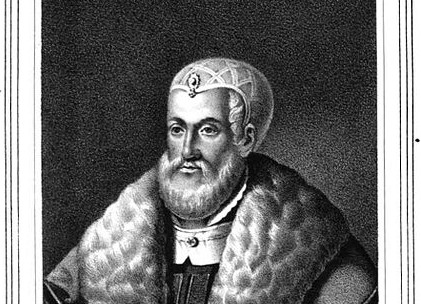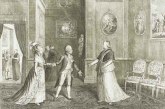
The British kings Edward VII, George V and George VI were the direct male descendants of Ernest of Saxony.
Ernest, Elector of Saxony was the last man who ruled over the whole of Saxony. Namely, in 1485 he gave part of Saxony to his younger brother Albert, and it remained separate ever since. Indeed, the two branches of the Saxon princes’ family were split into the Ernestine and Albertine dynasty, named after those two rulers.
Ernest’s successors were at first in a superior position to the Albertine line since Ernest was older. Thus his descendants were electors (German: Kurfürst) of the Holy Roman Empire, which allowed them to participate in the elections of the emperor. Ernest’s descendants succeeded his landholdings in Thuringia and what is today northern Bavaria, and later became so divided amongst themselves that Ernest’s lands were divided into ten smaller states. One of them was Sachsen-Coburg-Gotha. The current British queen is descended from that family (the family name was changed during World War I because Britain was at war with Germany).
The Albertine branch of the family inherited the lands of the former Margraviate of Meissen, including the territories around the important cities of Dresden and Leipzig. It later became more powerful than the Ernestine branch because it took over the electoral title from it and managed to preserve its territorial integrity. It later acquired the title of King of Saxony.
Ernest of Saxony had his capital in Wittenberg, where Martin Luther began his Reformation efforts. Ernest died in 1486, when Luther was only two years old.




